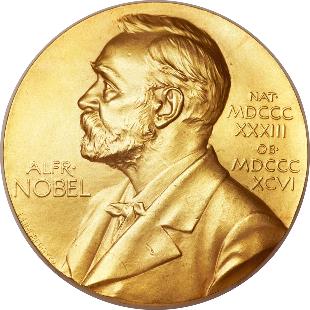What the Nobel Prize in Economics means for you
 The announcement of Eugene Fama as a Nobel laureate in economics was bound to happen someday, and it finally has. Fama’s pioneering research regarding how the market arrives at security prices constitutes a fundamental principle of finance. It’s also at the core of indexing.
The announcement of Eugene Fama as a Nobel laureate in economics was bound to happen someday, and it finally has. Fama’s pioneering research regarding how the market arrives at security prices constitutes a fundamental principle of finance. It’s also at the core of indexing.
Fama was already a professor at the University of Chicago Booth School of Business when I was there. In true UC fashion, we had a bidding system for class registration (let the market set the price). We all had 1000 points that we could use to bid on classes. Fama’s class always went for more points than anyone else. I never could make myself bid enough to get his class. But I did have Nobel prize winer George Stigler for a class on the inefficiency of regulation. I think the bidding system is probably common now, but in the 80s it was pretty novel.
Efficient Markets
Fama gained prominence in the 60’s and 70’s when he described the Efficient Market Hypothesis – the idea that markets so quickly respond to new information that it is impossible to systematically profit by buying or selling a stock or a bond based on news.
The new information may be that a company has gained FDA approval for a new drug, or has hired a new CEO, or will release disappointing earnings, or has a troublesome quality control problem. Fama’s research (which continues today) showed that this kind of information was reflected so quickly in security prices that an investor would, on average, be unable to profit on it by buying or selling.
Along comes indexing
As the Nobel committee described, “These findings not only had a profound impact on subsequent research but also changed market practice. The emergence of so-called index funds in stock markets all over the world is a prominent example.”
This may sound familiar. We often discuss in Osbon Labs how changes in security prices can be explained in hindsight, but cannot be predicted – making it impossible to systematically time the market or pick the next hot stock. That’s why we utilize exchange traded index funds. We want to hold a diversified portfolio that provides us market returns of a variety of asset classes while eliminating the chance that we could be wrong through short-term stock picking or market timing.
More relevant than ever
In my view, this Nobel selection has more relevance for the average American (or French or Japanese) household than any in recent history. Most Nobels honor landmark research that we can scarcely make sense of. But the idea of market efficiency is really a pretty simple idea that one can implement by holding a mix of index investments for the long term.
Our congratulations to Professor Fama and co-laureates Lars Peter Hansen and Robert Shiller.
*Steve Mott* Osbon Capital editor since 2006 – if you like our writing now you know why. As Hemingway said, ‘behind every author is a great editor’. (That would be Maxwell Perkins)
Weekly Articles by Osbon Capital Management:
"*" indicates required fields
